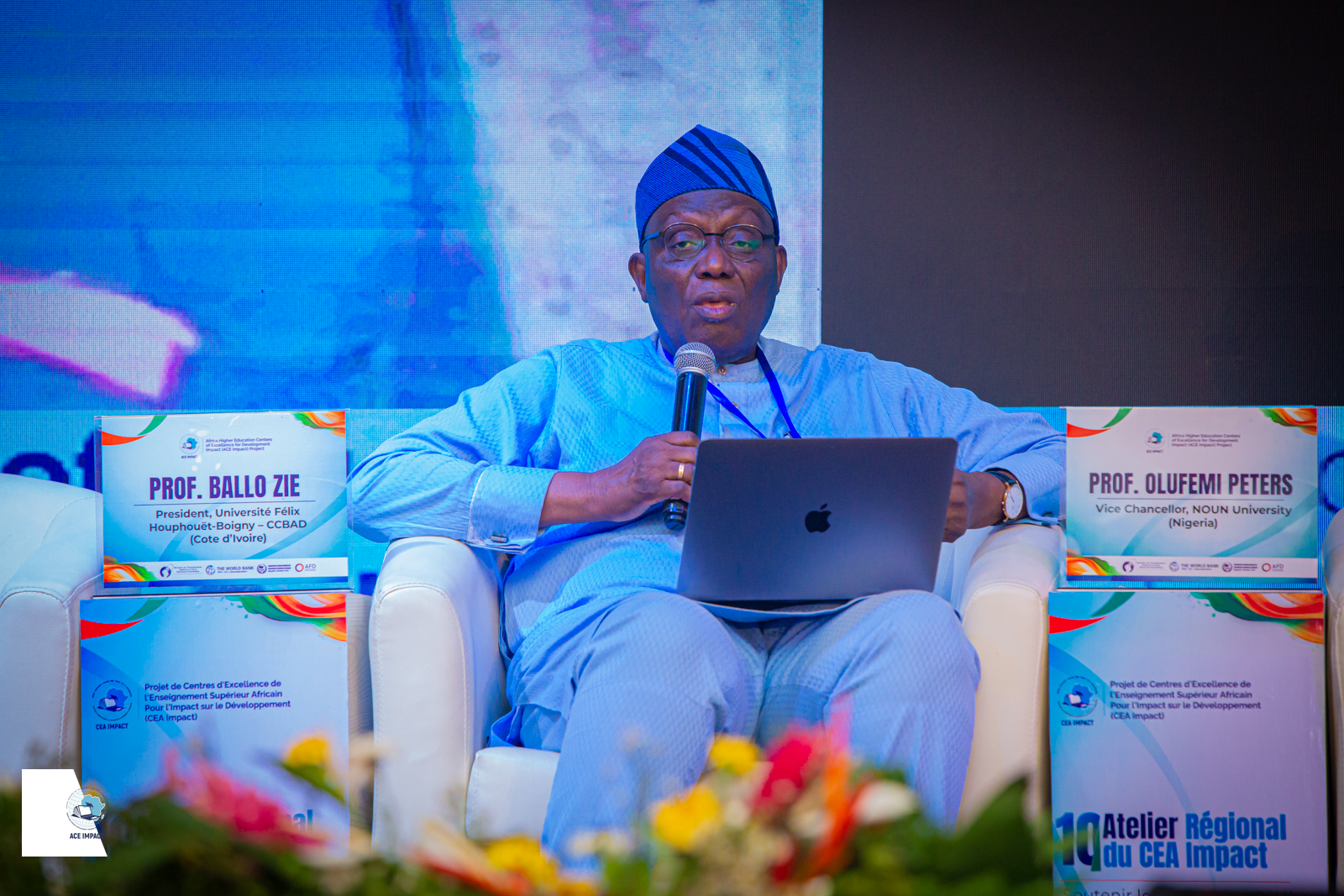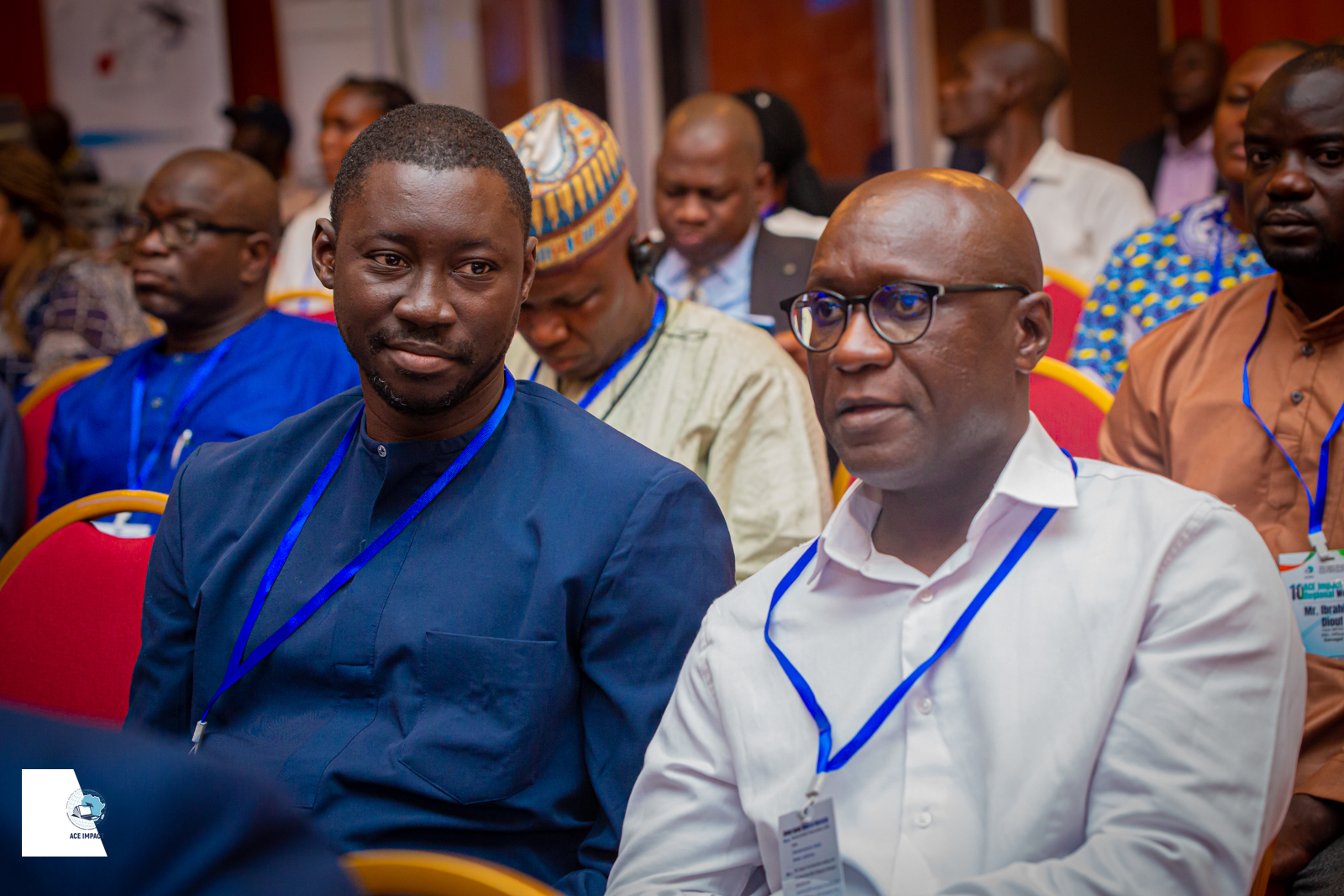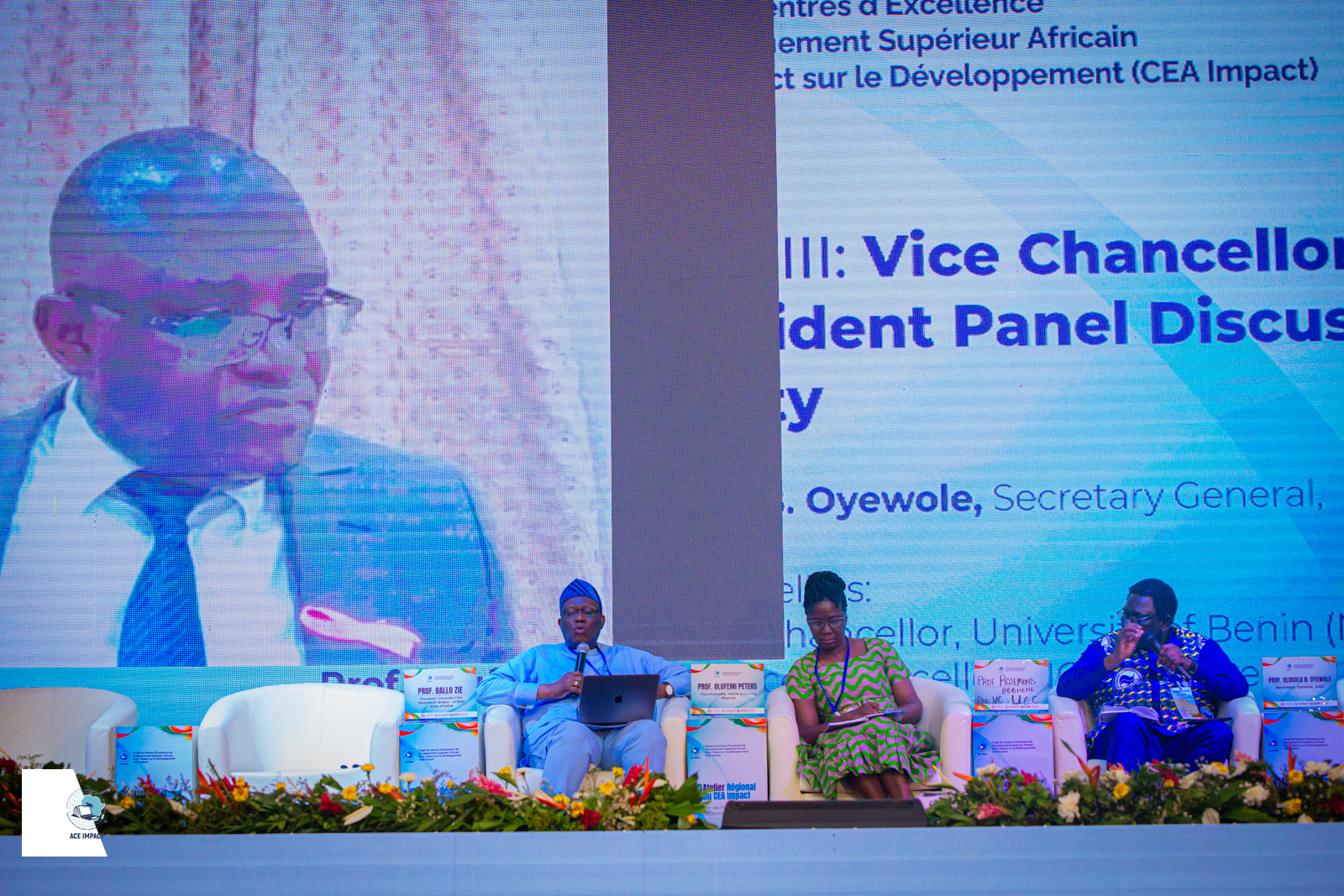As the ACE Impact Project comes to a close in June 2025, justifiably the issue of sustaining the 53 Africa Higher Education Centers of Excellence for Development Impact (ACE Impact) projects located in 11 west African countries (including Djibouti) has taken center stage. Over the last decade, ACE Impact centres of excellence have contributed to the continent’s highest quality research and innovations, post-graduate training, infrastructure development, capacity building, achieved international accreditation, and collectively generated over US$75,000,000 in external funding. The ACE program has invested heavily in the development of strategic partnerships and thematic networks in order to ensure longevity. Incorporating sustainability measures into the ACE Impact Projects is therefore essential for maximizing the impact of investments, addressing the specific needs of African countries, and promoting long-term development for African higher education and research. These centres have produced outstanding results and achieved key milestones in the objective to find solutions to Africa’s development challenges and this work must continue beyond the World Bank Group and French Development Agency funded projects.
In accordance with project design, disbursement linked indicator seven (DLI7) is designed to facilitate the achievement of institutional impact goals by the ACE Impact hosting institution. The objective of DLI7 is to foster sustainability by encouraging host universities actively participate in crucial project components. This includes activities such as developing comprehensive regional strategies at the university level, undertaking open, merit-based competitive selection of senior university leaders, and conducting institution-wide international accreditation, gap assessments, and self-evaluations.
During the 10th ACE Impact Regional Workshop hosted in Abidjan, Cote d’Ivoire from 31st October to 3rd November 2023, a special panel was held for Vice Chancellors to discuss the sustainability of their ACE Impact Centers. This session took place on the 31st of October 2023 at Latrille Events Centre in Abidjan and was moderated by the Secretary General of the Association of African Universities Professor Olusola Bandele Oyewole. Professor Olufemi A. Peters the Vice Chancellor of the National Open University of Nigeria, Professor Rosemond Boohene the Pro-Vice Chancellor of the University of Cape Coast, Ghana, and Professor Ballao Zié the Vice Chancellor of Université Félix Houphouët-Boigny, Cote d’Ivoire participated in this panel to share their thoughts on the role of universities in creating an ecosystem for sustainability before the current financial project support comes to an end.
Challenges for sustaining the ACE Impact centres.
In response to the question on challenges around sustainability, Professor Olufemi A. Peters shared that Open Universities operated within a specific context and faced challenges related to limited technical infrastructure, limited access to devices and learning materials, irregular power supply, limited digital literacy of students and staff, academic integrity issues, and risks associated with cyberattacks. To address the challenges associated with regulatory framework support for online learning, the National Open University of Nigeria had involved the National Universities Commission in the planning and development of the open university programmes to create buy-in and assure the sustainability of the university.
Professor Ballao Zié suggested that it was important to prioritize innovative activities and promote a strong research culture and dynamic industry relations. He mentioned that challenges of sustaining the ACE Impact Centers included weak partnerships, the training needs of staff and students, and the unfavorable legal / regulatory frameworks that universities operate under.

Professor Rosemond Boohene emphasized that for ACE Impact Centres to ensure their sustainability, they need to align with their respective university vision and mission, secure strong backing from top management, and receive support from other university departments and administrative functions.
She gave examples of how the University of Cape Coast collaborated across the university units to deliver on DLI7 and DLI 5.3. To implement DLI7, a broad university team worked together on the regionalization strategy and international accreditation. The implementation of DLI 5.3, focused on entrepreneurship, involved a collaboration with the University’s Center for Entrepreneurship. According to Professor Boohene, her university’s most significant sustainability challenge was obtaining government support through a change in fiscal policy. A favourable fiscal policy adjustment would enable universities to secure larger budgets, tax exemptions for importing essential equipment, and financial resources to support the construction of coastal research infrastructure.
Discussions involving the broader workshop participants.
Professor Olusola Oyewole then led a discussion involving all the workshop participants and it focused on national policies hindering the sustainability of the ACE Impact Centres, challenges limiting research commercialization and experiences on how university leadership changes affected the continuity of the ACE impact Centres.
Are there national policies that don’t support the sustainability of the ACE Impact Centres?
The national policies that don’t support the sustainability of ACE impact Centres were said to include the Tuition Fees Policy which restricts public universities from charging competitive fees to support the running of quality MSc and PhD programs. The audience agreed that a commercial mindset would be helpful towards developing effective strategies for sustaining the ACE Impact Centres through the establishment of incubation centres, commercialization of research outputs and strengthening the relationships with industry players.
What are the challenges limiting commercialization of research outputs?
Barriers hindering universities from commercializing their research findings were identified as challenges in locating partners interested in specific patents, unfavourable legal regulations, and a lack of readiness among stakeholders to embrace the proposed products or inventions. Reliance on outside solutions, poorly developed university technology transfer centers, and weak connections with industry also limit commercialization of research outputs.

The participants recommended establishing university technology transfer offices as limited liability companies and staffing them with a diverse range of expertise to enhance their ability to effectively assist the universities. Further, governments could enforce enabling policies for productive sectors to partner with research centers and universities.
Do the changes in university leadership threaten the sustainability of the ACE Impact Centres?
Three Centre leaders testified that changes in the leadership of their universities had not affected the smooth running of the ACE Impact projects. The factors contributing to this seamless continuity included the formalization and documentation of associated agreements, the integration of Centre staff into the university’s main administration, and the outstanding performance of these Centres, which effectively demonstrated their ongoing viability and sustainability. The participants advised that the Centre leaders should maintain transparency, engage with the broader university community, showcase the value of the Centre, and foster a collaborative team approach, rather than working as individuals. To sustain the ACE Impact centers, the academic and research programs should be highly appealing, the Centres need to prioritize establishing endowment funds, and ensure strong commitment and ownership from both the host institutions and the government authorities. It is imperative that the ACE Impact Project has a lasting and significant impact, by ensuring that the investments made continue to benefit the African higher education stakeholders well beyond the project’s conclusion.
